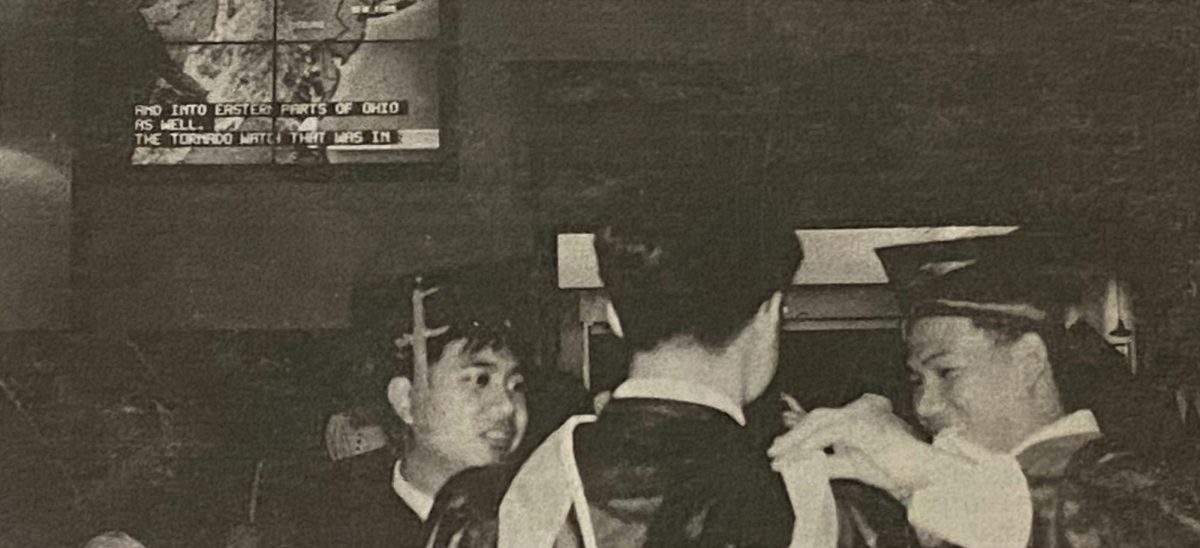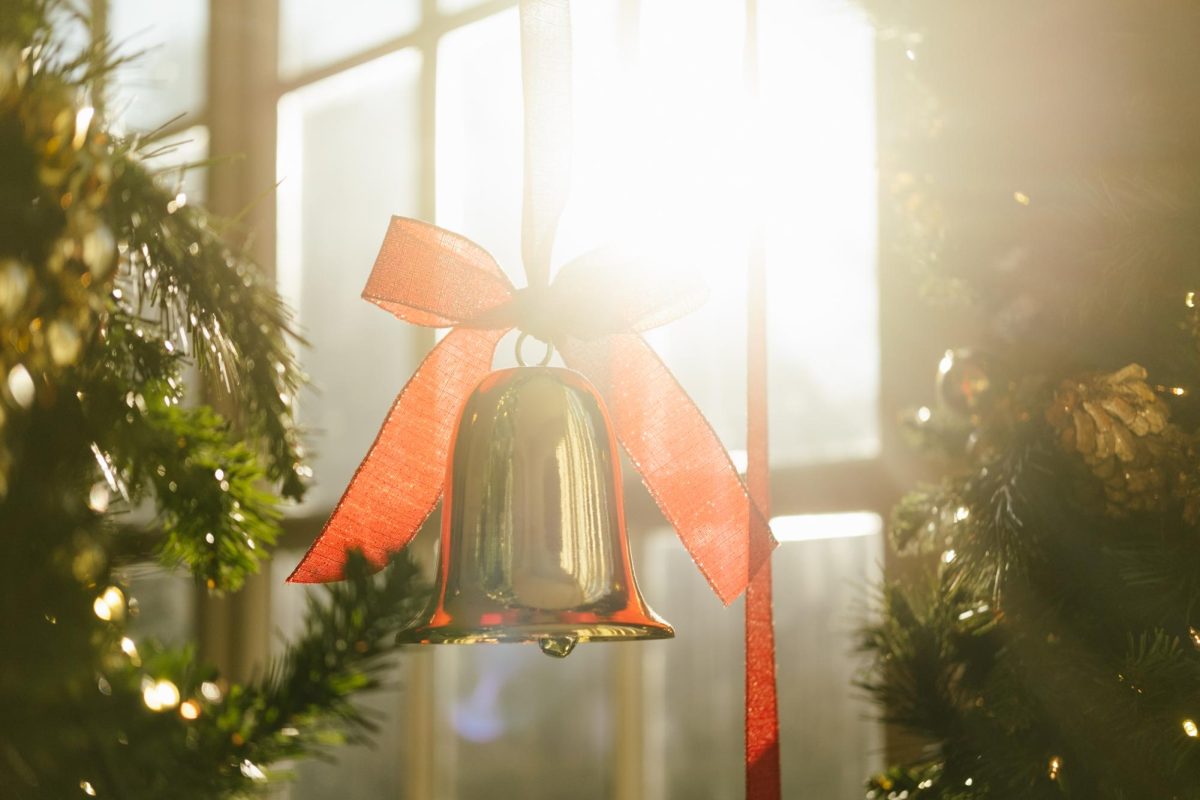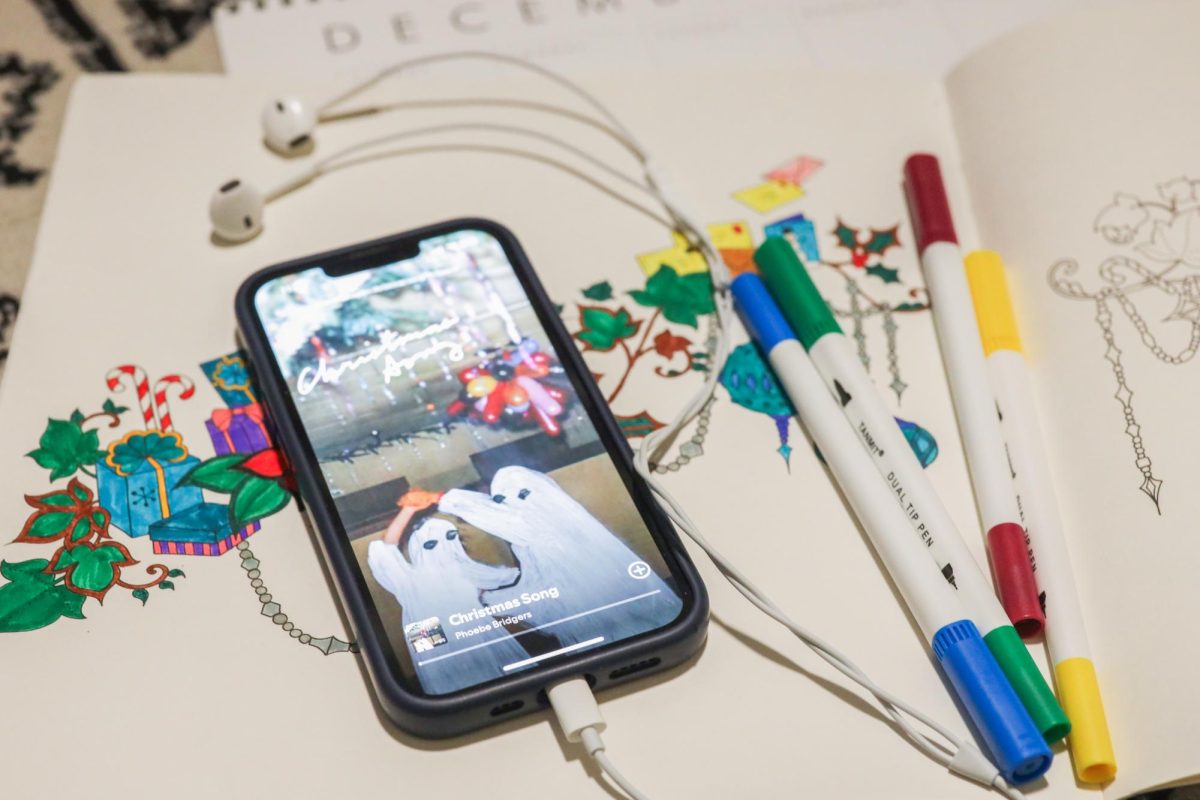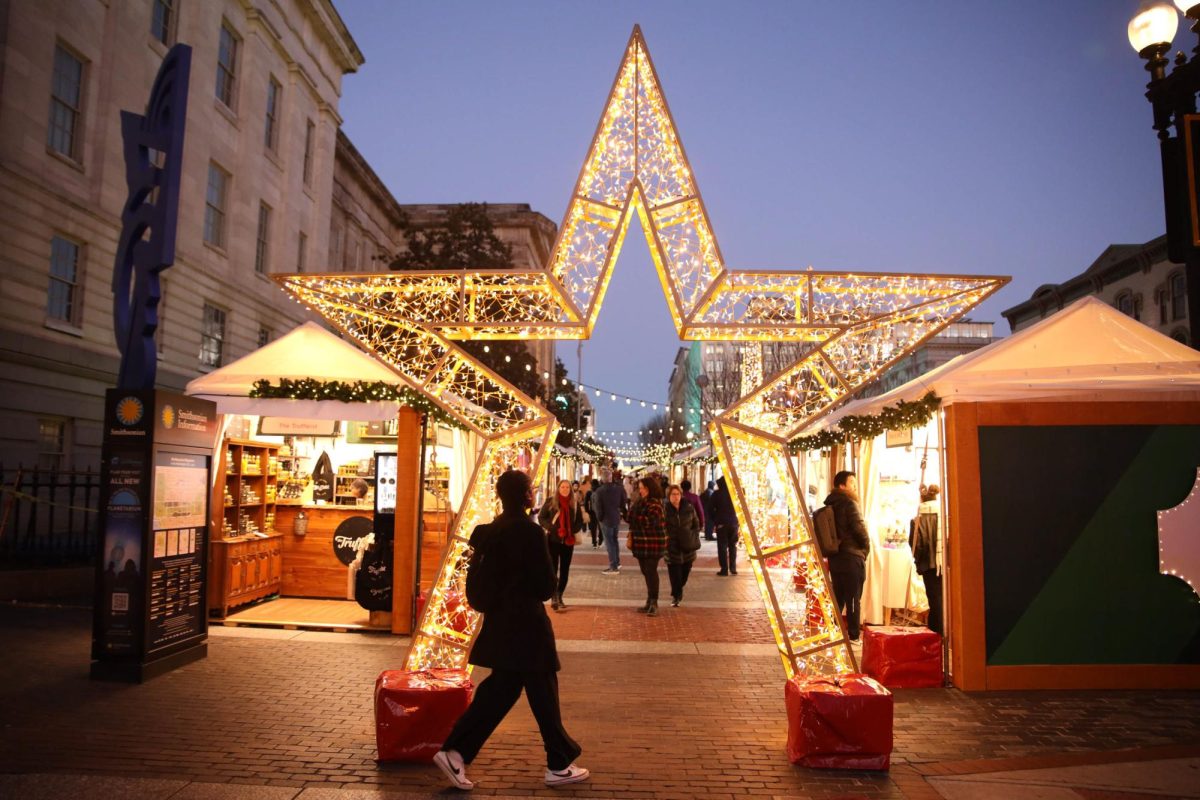On a Sunday in May 1995, a storm brewed above the heads of GW graduates and their families as they gathered on the Ellipse, just south of the White House, to begin the University’s annual Commencement ceremony.
Despite the University’s “rain or shine” policy, lightning strikes forced the Class of 1995 to move off The Ellipse, the area behind the White House lawn where Commencement was held until 2006, and officials to cancel the ceremony without a backup plan. Graduates and attendees filed into the Marvin Center — now named the University Student Center — to wait for directions from officials, who eventually delivered and broadcasted an abridged ceremony from Betts Theatre to the few hundred people who stuck around.
“Most graduates and their families left the building before the truncated ceremony even began,” reporters Kynan Kelly and Jared Sher wrote in The Hatchet’s May 15, 1995 print edition. “One student’s guest said, ‘Do we really have to sit here and listen to this?’ before the family left early.”
An announcement from University officials published in The Hatchet’s May 8, 1995 print edition stated that students and their guests should bring “umbrellas, rain gear and a sense of humor” if inclement weather arises. The cancellation the weekend after was the first in GW’s history at the time, according to a Washington Post report.
The scene of students and their family members swarming every restaurant in Foggy Bottom after officials canceled Commencement that year was “hilarious,” said Maida Withers, a professor of dance who is retiring this semester after teaching at GW for 58 years.
“There was no communication, nothing happened,” Withers said. “Everybody was trying to go to the restaurants and eat — everything was packed with GW families.”
Robert Baker, an associate professor in the Corcoran School of the Arts and Design’s music program, said he was at the 1995 Commencement to assist with the musical performances, which he has consistently done since he first started at GW 33 years ago. He said the University has instituted “rigorous” backup plans for Commencement in the years after officials struggled to rectify the canceled ceremony in 1995.
“There has never been another weather incident like that,” Baker said.
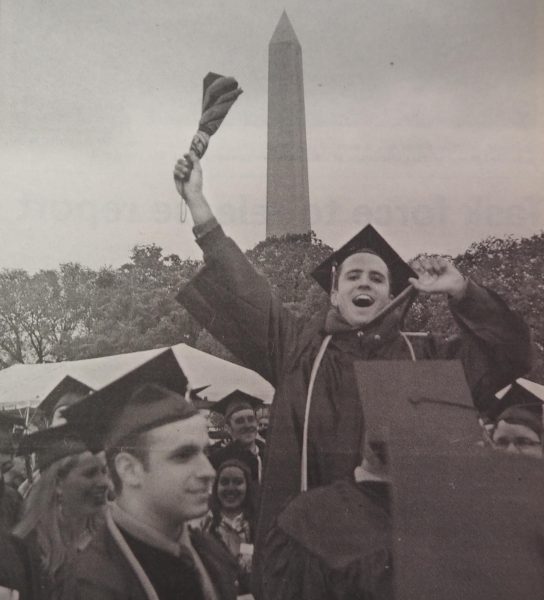
The storm of ’95 stands out among the memories of faculty who have collectively attended dozens of Commencement events. Professors recalled the same air of celebration among graduates as they reflect on the ceremonies they’ve witnessed throughout their tenure, punctuated by memorable spectacles like pulling pranks, rain showers and uncertainty during the COVID-19 pandemic.
“When the students and families start to trickle in, and it’s interesting, I am always caught by surprise by the amount of joy that is flooding the spaces in which I am,” Baker said.
David DeGrazia, the Elton Professor of Philosophy who has taught at GW for 35 years, said one of his most fond graduation memories dates back to a Columbian College of Arts & Sciences ceremony early in his time at GW, one of the several school-specific events that occur before the main event Sunday.
While preparing for the procession, DeGrazia told the seniors of the Philosophy Department that he thought it would be funny to write down a philosopher’s name as the middle name of each student on the cards used to announce each graduate.
From Plato to Aristotle, the seniors put DeGrazia’s suggestion into action, crossing the Commencement stage to the sound of famed philosophers’ names echoing through the Student Center. He said the homage roused laughter from the audience as they caught on to the schtick.
“Students thought the philosophy majors were so great for that, for doing that,” DeGrazia said. “And so it was a lot of fun. It was a way of showing respect for major philosophers. And it was playful, and it didn’t do any harm.”
Philosophy students received a warm reception for the bit, but when DeGrazia tried to replicate it with graduates the following year, the announcer refused and skipped over every middle name in the department’s roster.
“She didn’t have a sense of playfulness or creativity,” DeGrazia said.
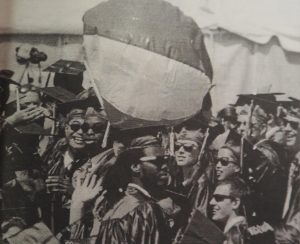
Looking back on the Commencement ceremonies he’s attended during his 35-year tenure, DeGrazia said he is struck by the similarity of the rituals and traditions, even with new students taking part every year.
“It’s the same in that there are philosophy majors, and then countless other majors who are finishing college and they walk through the line, they shake hands and they get their degree,” DeGrazia said. “And so the faces of the students are always different, the personnel is always different. But then I’m always there and they stay the same age and I keep getting older, which is sort of interesting.”
DeGrazia said he sometimes reflects on his own graduation from the University of Chicago in 1983 and how “dizzying” it felt to complete his undergraduate education.
“To some extent, I imagine that it might also be sort of both exciting and sort of bewildering for a lot of the students as they graduate, only about 21 years old, and they realize they’re going to be starting a new chapter of their lives,” DeGrazia said.

Mark Elliott, an associate professor of biochemistry and molecular medicine who began at GW in 2006, said he has never made it to Commencement on the National Mall but has attended the master’s and doctoral hooding ceremonies for the School of Medicine and Health Sciences.
“All I can tell you about graduation is that it allowed me to catch up on naps,” Elliott said in an email.
Denver Brunsman, an associate professor and the chair of the history department who has taught at GW since 2012, said the 2020 and 2021 virtual Commencement ceremonies due to the COVID-19 pandemic were among the most difficult changes he’s witnessed at University Commencement since faculty were unable to send their students off in person. Watching his students graduate and meeting their families is one of the most rewarding experiences as a faculty member, he said.
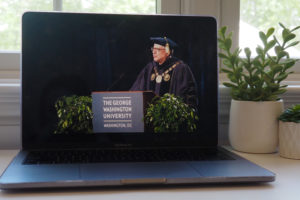
“It makes, especially the old-timers, appreciate the in-person Commencements even more,” Brunsman said. “I mean, take it away and we really realize how special it is, how important it is, not just to students, but also to faculty.”
Brunsman is far from the only professor who expressed their fondness for the in-person ceremonies he’s attended over the years — Baker, after 33 years at the University, said he often feels a particular sense of joy around campus at Commencement time. But he said there is a feeling of uncertainty on campus surrounding the status of this year’s Commencement due to officials’ response to the pro-Palestinian encampment in University Yard, harking back to the doubt surrounding graduations in 2020 and 2021.
Officials issued an update on guidelines and prohibited items for the Class of 2024 Commencement events Friday. The guidelines state that law enforcement officers can remove protesters who disrupt the proceedings after an initial warning, and amplified sound devices and signage like posters, banners and flyers are now prohibited items.
Baker said he hopes the University can carry forward with 2024 Commencement without curtailing student activists’ right to freedom of speech.
“My general feeling is I hope we can do both things,” Baker said. “I hope we can have a coherent celebratory commencement and also operate in the space that represents First Amendment rights and freedom of speech. In all circumstances, that’s the challenge of democracy, it is the challenge or responsibility of all of us to be able to do that.”


